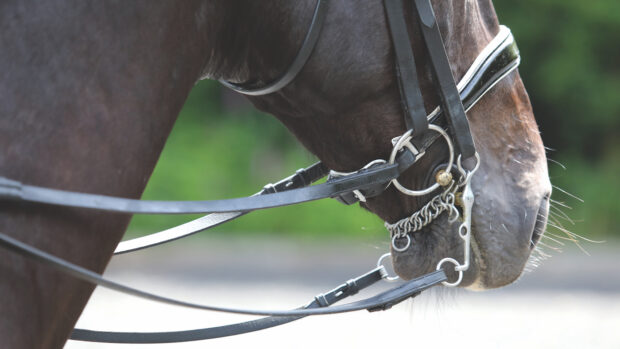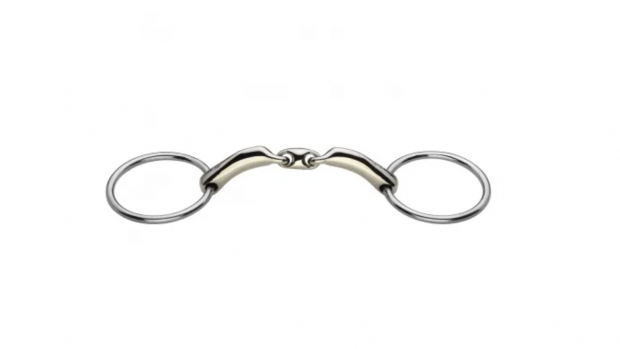Q: I use a straight-bar snaffle on my horse, but my instructor suggested a sweet iron bit might help him soften in the mouth. How much does a bit’s material affect the horse?
CG, Bedfordshire
Choosing the right bit for your horse is like fitting a jigsaw puzzle, but there could be options to help your horse soften and become more receptive to the correct aids — a different mouthpiece, different bit rings or, as you say, a mouthpiece made from another metal.
What are the advantages of sweet iron bits?
Stainless steel is the most common metal used to make modern bits. However, some horses find the metal tasteless and cold, which is probably why your instructor suggested sweet iron, a metal said to encourage salivation.
Sweet iron oxidises with use, to produce a sweet taste. These bits have had a negative press thanks to inferior manufacturing processes, but nowadays good quality sweet iron bits are safe and well made; combinations of copper and sweet iron — e.g a sweet iron jointed snaffle with a copper lozenge at the centre of the bit — are common.
What other materials are available?
Another material that may work for your horse is Salox, used in Neue Schule bits, as stockist Stephen Biddlecombe of worldwidetack.com explains: “Salox is a nickel-free, copper alloy formulated to encourage acceptance of the bit through warmth and sweetness.
“The copper is alloyed with other major and trace components, and warms very quickly in the horse’s mouth — because Salox maintains blood temperature, the mouthpiece doesn’t feel like a foreign body to the horse, which means many riders find the rein aids are more definitive.”
Other types of mouthpiece materials available include polyurethane and rubber blends — a reputable lorinery supplier can talk you through the options. You should also check whether the bit is worn, in which case it could be causing discomfort.
Information
www.worldwidetack.com
The Worshipful Company of Loriners, tel: 01386 751695 www.loriner.co.uk
This Q&A was first published in Horse & Hound (19 March, ’09)




